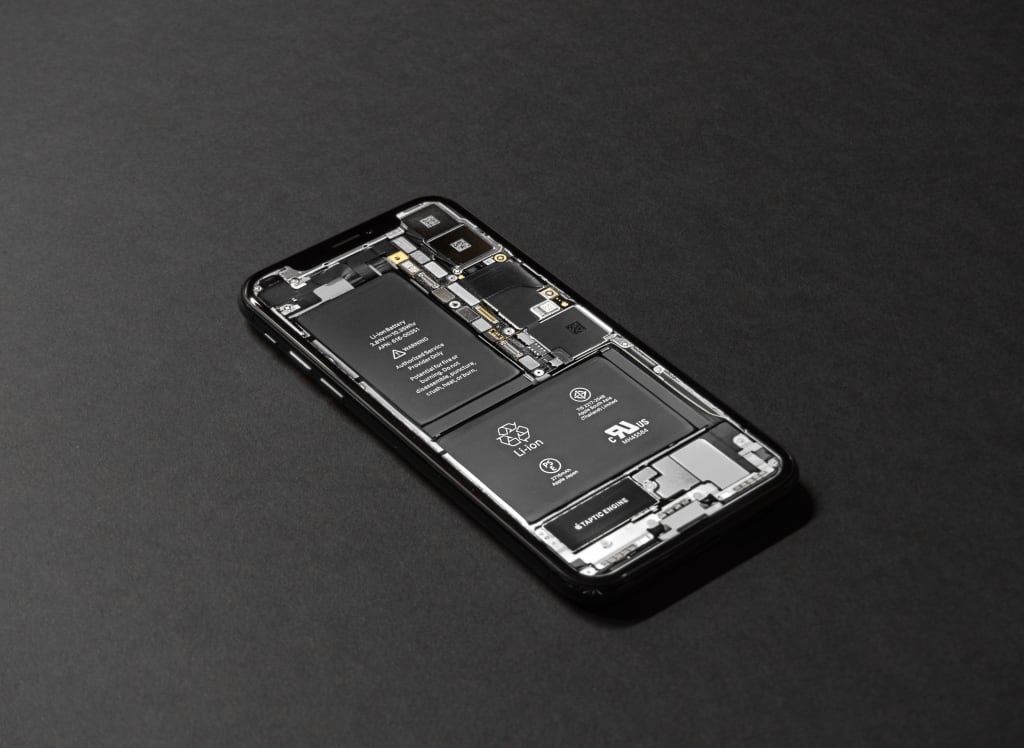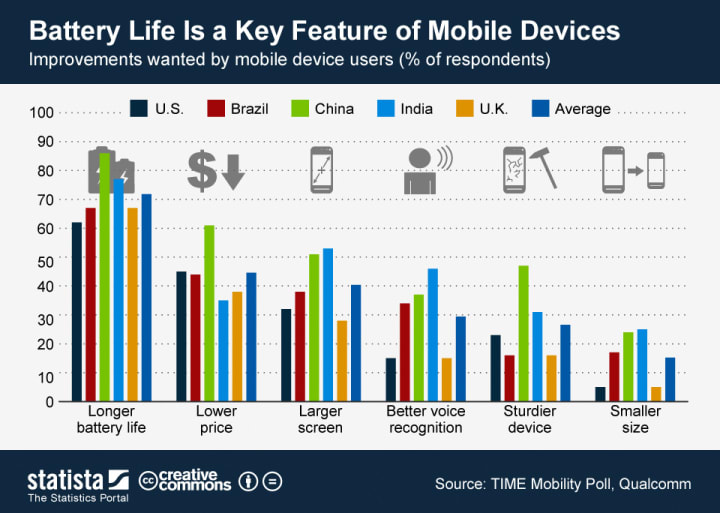Could AI Be The New Power To Boost Smartphone Battery Life?
The capabilities of AI could boost battery life by 30% and here's how

It's no secret battery life is one of the most frustrating parts of getting a smart device. The bigger your screen, the more data you transmit and the slower your phone will drain. However, what if AI could help?
Well, it sounds like they might have figured out how to predict battery life with an AI model accurately and eventually develop a phone that automatically optimises its performance based on habits, grip strength, breathing pattern, or even temperature - all things you may never know about yourself.

(Source: Statista)
Battery life is essential, especially if you have just upgraded to a new smartphone. However, it can be a pain if your phone is getting slower and slower as it charges or the battery no longer lasts as long. In fact, for some people, their phone freezes up before the battery reaches 100 percent.
A Chinese firm Ambri has released an AI model that can predict battery life and is trying to tackle this issue. The company recently released an app called 'Battery Care', which lets users check their battery level and gives advice on how to maintain it. The app, however, has a caveat: it is only available for certain handsets.
The app uses AI and a sensor to determine how the user is using their device and their current battery level to give useful feedback. It then uses this information to predict how long the battery will last and recommend ways of preserving it.
Despite its limitation, Ambri has found success with this app by reportedly saving some users hundreds per year on battery costs - so far, at least. Needless to say, that's an impressive accomplishment for an app based on AI predictions versus actual usage.
The key to the app's success lies in its technology; it uses an AI model trained using a data set of 10,000 people. Using that data, Ambri was then able to develop a model that can predict battery life based on these three key factors: how much you charge your phone every night, how often you use specific apps and how long your phone has been turned on.
"The traditional method is straightforward," says Li Zhong, co-founder of Ambri. "For example, if you use the camera more often, your battery will last less." However, the app can determine this with AI based on "how the user holds their phone and other data".
"We are trying to determine the relationship between these different factors and battery life," adds Zhong. "Through AI, we can make predictions."
The key is that Ambri's model can manage to provide detailed information on how you use your phone. It then gives you actionable insight into improving your phone's battery life and making it last longer, especially for handsets like the Galaxy Z Fold which houses a 4400mAh battery, split in two cells.
Such insights are a revelation for a user and a handy tool for creating a better experience for them. However, such insights would not be possible if it wasn't for AI. Another new piece of cutting-edge technology that could change the landscape of smartphone batteries is AI incorporated into an app called the EOptomizer developed by The University of Essex.
The app is expected to be used throughout the industry to help reduce carbon emissions by helping to extend the battery life of consumer goods. The app will do this by utilising its software capabilities to increase the efficiency and dependability of batteries on devices such as smartphones, tablets, smart fridges, smart watches and laptops. This will help decrease the carbon footprint by stopping consumers from having to purchase new devices so often.
The software uses AI to help optimise the chips' performance and efficiency while controlling heat generation. The app can help optimise energy used in the device throughout the day, creating more battery life. For example, if users are scrolling through the news in the morning, the app will be able to recognise that they are using a higher volume of frames per second compared to slowly scrolling through the news in the evening. This means the AI can determine the best CPU frequency whilst consuming the least amount of power and heat, which is essential for these kinds of devices.





Comments
There are no comments for this story
Be the first to respond and start the conversation.